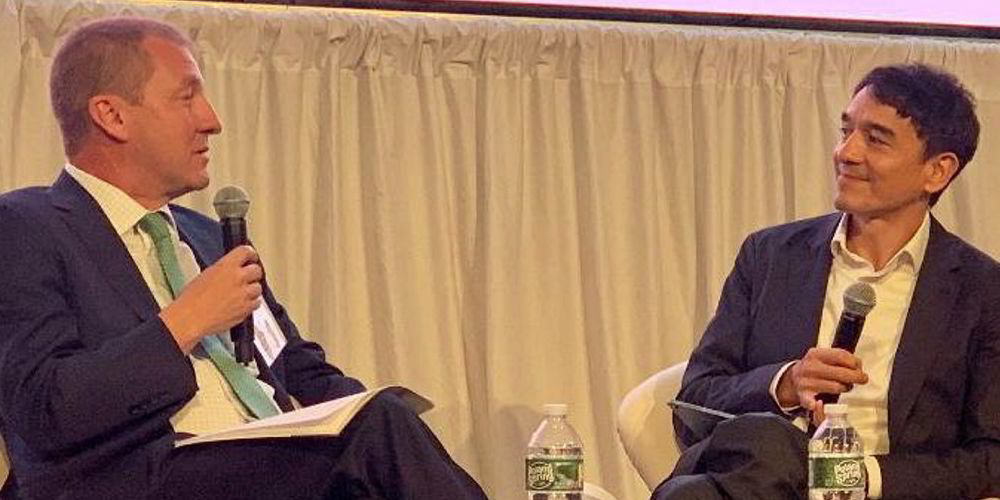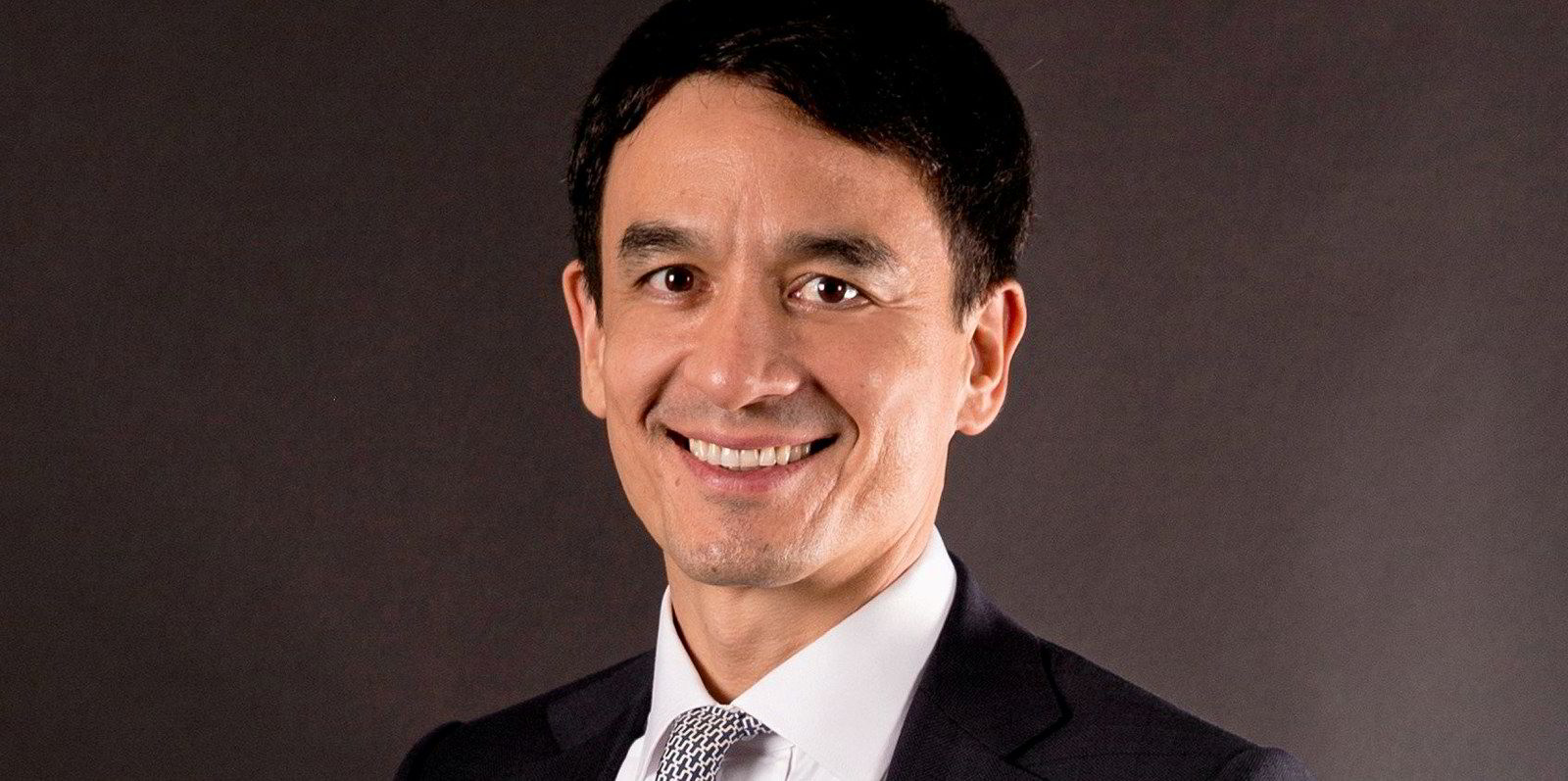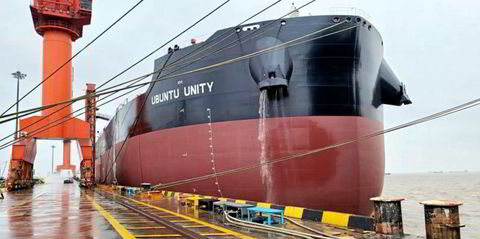Master consolidator Andreas Sohmen-Pao admits it might seem a contradiction to say he’s worried about the world economy and geopolitics but sanguine about the prospects for shipping markets.
But that was the case the BW Group chairman made as a featured speaker on Wednesday at the 34th Marine Money Week conference in New York during an on-stage interview with Jefferies shipping investment banker Doug Mavrinac.
“I’m very positive about the shipping outlook and very worried about the world outlook,” Sohmen-Pao told Mavrinac.
“During the last half-century, we’ve built this incredible economic machine on the back of cheap energy, cheap money and low-cost labour.
“We’ve just put that system through a period of unbelievable stress. And it’s a pretty resilient system that was able to survive the financial crash of 2008.”
Sohmen-Pao referenced the shutdowns triggered by the Covid-19 pandemic, the revival of demand abetted by trillions of dollars worth of economic stimulus and finally the outbreak of war in Europe with Russia’s invasion of Ukraine.
“The point I’m making is that the machine is breaking down,” he said.
“The things we took for granted, we can’t take for granted any more. The bad movie is going to be real if this hits the food system. You can deal with a shortage of semi-conductors, but when there isn’t enough food, things get really messy.”
As to why he is more positive on shipping’s prospects, Sohmen-Pao said that although a global slowdown in consumer purchases could indeed be bad news for the long-rampant container ship sector, current supply dislocations should prove favourable to movers of bulk commodities.
“I’m a fan of bulk shipping, wet and dry,” he said. “They benefit from energy geopolitics and just the need to sustain day-to-day livelihoods. They have these very strong tailwinds.”
The BW Group owns or is an investor in companies ranging from BW LNG and BW LPG to product tanker owner Hafnia, VLCC specialist DHT Holdings and BW Dry Cargo. It also plays in the renewables sector through 10 entities including BW Solar and wind specialist Cadeler.
Mavrinac pressed the BW chairman on which is his favourite investment and which might be an up-and-comer.

“My favourite is whoever’s generating the most profit,” Sohmen-Pao quipped, before admitting, “That’s a bit of a facile answer. We believe in being countercyclical, so sometimes that’s the one that’s not doing so well but is poised for improvement.”
He gave a nod to Hafnia, which he noted had bought more than 40 tankers in the past year during a market trough and was now poised for a significant recovery in the clean products market.
He concluded with the observation that while the group is investing heavily in green-energy businesses, “the cash flow is very much on the left”, an allusion to a chart showing BW’s involvement in traditional energy.
“There are some interesting companies on the right like Cadeler, but they’re in the growth phase, sucking in capital. We’re thinking 10 years out.”





